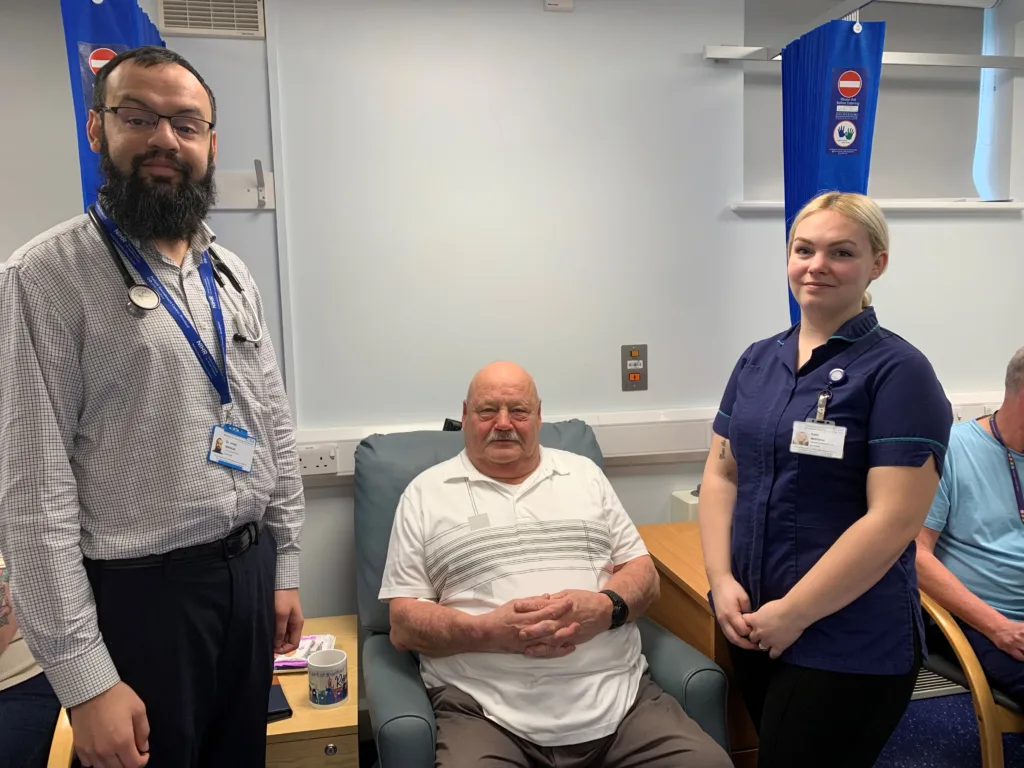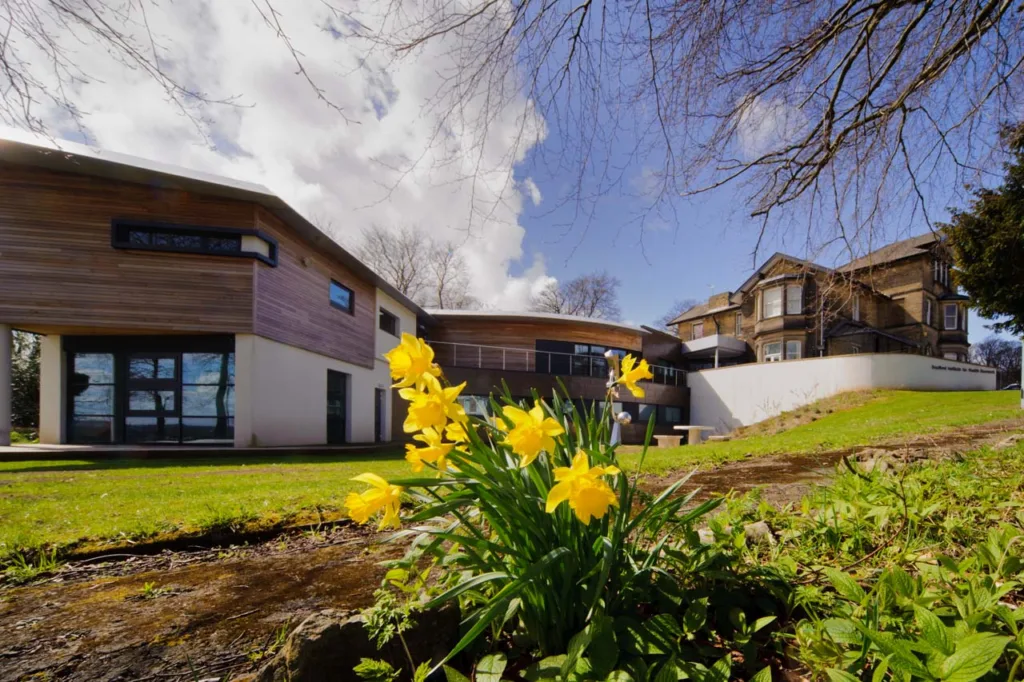City transformed from ‘neglected backwater’ of health research into global leader, as Bradfordians advance medical science in record numbers
BRADFORD has consolidated its position at the forefront of world-class, people-powered medical research after recruiting the highest number of volunteers for health studies in the UK over the past year.
The team at the Bradford Institute for Health Research (BIHR), part of Bradford Teaching Hospitals NHS Foundation Trust, propelled itself into the coveted top spot after more than 25,000 Bradfordians signed up to take part in its growing portfolio of 86 live studies, new figures reveal.
It leap-frogged individual hospitals and academic institutions in cities such as London, Oxford and Cambridge to take pole position nationally for the first time.
The feat has been hailed by Director of BIHR, Professor John Wright, who said it underlined Bradford’s rapid transformation from a “neglected backwater of medical research” into a true global leader.
“This is a stunning achievement that reflects both the amazing altruism and support from the people of Bradford and the pool of home-grown talent that exists across our research teams,” he said.
“Just 15 years ago, the city was a neglected backwater of medical research.
“Today, we are leading the country – trailblazing flagship studies and securing world ‘firsts’, as well as overtaking the leading medical research centres in London, Oxford and Cambridge as the UK’s top recruiting hospital.
“Thanks to the amazing people of Bradford, who continue to join our research journey in unprecedented numbers, we can all work together to advance science and help develop better treatments at pace and at scale.”
He added: “Bradford has become a city of scientific discovery, a city of innovation. Above all, we are not just a City of Culture – we are now also a City of Research.”
The range of studies pioneered at BIHR means that research participants span all age groups – from unborn babies to people well into their 90s.
These range from the global-setting Born in Bradford study, to Age of Wonder – one of the biggest research projects involving teenagers in the world; from developing better drugs to pioneering cutting edge genetic research.
Bradford’s standing at the top table of health research centres in the UK is further strengthened by the compilation of its expanding cohort of participants – over 70% are from the poorest corners of the city, while more than half are from minority ethnic communities.
To find out more about the research projects taking place in Bradford, and contribute to their future success by signing up, please visit www.cityofresearch.org

The league table of the top ten recruiting hospital sites in the last 12 months shows Bradford Royal Infirmary as the highest with 25,320 new participants, followed by King’s College Hospital in South East London (25,157); Addenbrooke’s Hospital in Cambridge (21,699); John Radcliffe Hospital in Oxford (16,780); the Royal London Hospital (13,489); Southmead Hospital in Bristol (12,470); Hammersmith Hospital in North West London (11,679); University College Hospital in North London (10,444); Queen Alexandra Hospital in Portsmouth (9,711); and the Royal Free Hospital in North London (8.943).
At the forefront of people-powered research – what our volunteers say:
- Anthony became the participant in Europe to take part in a flagship medical research study into breathing difficulties. You can find out more about the trial, and why he volunteered, by watching this video. He said:

“It’s amazing to be the first participant in Europe. I’m glad to help if it helps chronic obstructive pulmonary disease (COPD) in other patients. I’ve taken part in three other in the last five years. I feel very privileged to be here at the Bradford Institute for Health Research. They are very nice people and it’s very pleasant. And I’m glad to help.”
- Syed and his family are part of the ground-breaking Born in Bradford study. He said:
“When you become a parent you want the best future for your children. By taking part in Born in Bradford I hope that me and my family can help, in our own small way, to how doctors can better understand the causes of ill health and find treatments to help our children and future generations.”

- Bradford teenagers Lucy, Grace, Jasminder, Megan, Owen, Francis, and Reuven are all taking part in Age of Wonder, the biggest study into adolescence of its kind. They said:

“It’s like opening a window – a chance where I can speak to my truth and how I feel and just make the world a little bit more aware of how teenagers feel. It’s important because a lot of teenagers feel like they’re not heard and they just feel like they can’t do anything about it, and that no-one’s gonna listen to them, when, in fact, it’s not the truth. There’s people out there to hear their voices, and this is a chance for them to be heard.” – Lucy
“I feel like it’s really exciting because then when I’m older, when I’m like 18 or 19, I don’t know how
old I’ll be but it’ll be really exciting to look back on what my thoughts were, and what I looked like,
and what I thought about the world and what I wanted to be, because I bet it’ll change before
then. I bet it will change because things will
change in the world and that will change my thoughts about it.” – Megan


“I think it’s really important to hear young people’s voices because the more you do, the more you get to know what other people’s opinions are […] It’s just really good, because there could be some kid out there, who just has so much to say about the world, like Greta Thunberg, she is amazing, and she’s a teenager like us, and she has a great speech.” – Owen
“I think it is pretty cool. I think the project is really interesting because you are getting loads of people from all over Bradford and learning from them – you will learn different stuff from different people.”– Reuven

“I feel like it’s really important for people, especially to see different kinds of people from Bradford, because there’s a full variety of people. […] someone might come from a poor family, someone might come from a rich family […] there’s a lot of different people. I feel like it’d be good to see both ends of the scale and it’ll help understand what people are like more.” – Grace
“It will help people in the future as well as you because then if you have kids and you still live in Bradford, then it’s gonna help them in a positive way and change it for the better.” – Jasminder
“I think that we’ve got a very good opportunity, because a lot of people, especially in other generations haven’t had at all a chance to express themselves and have their voice heard, especially minorities and other races that have been discriminated against.” – Francis

